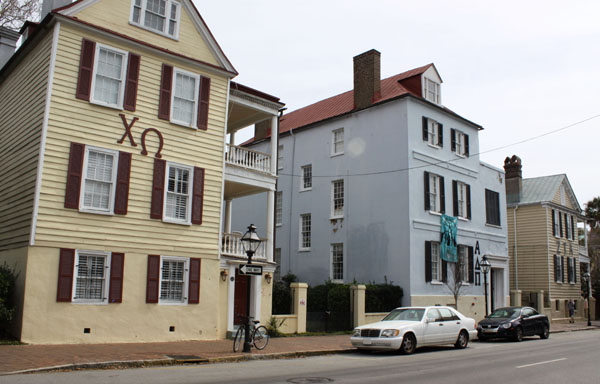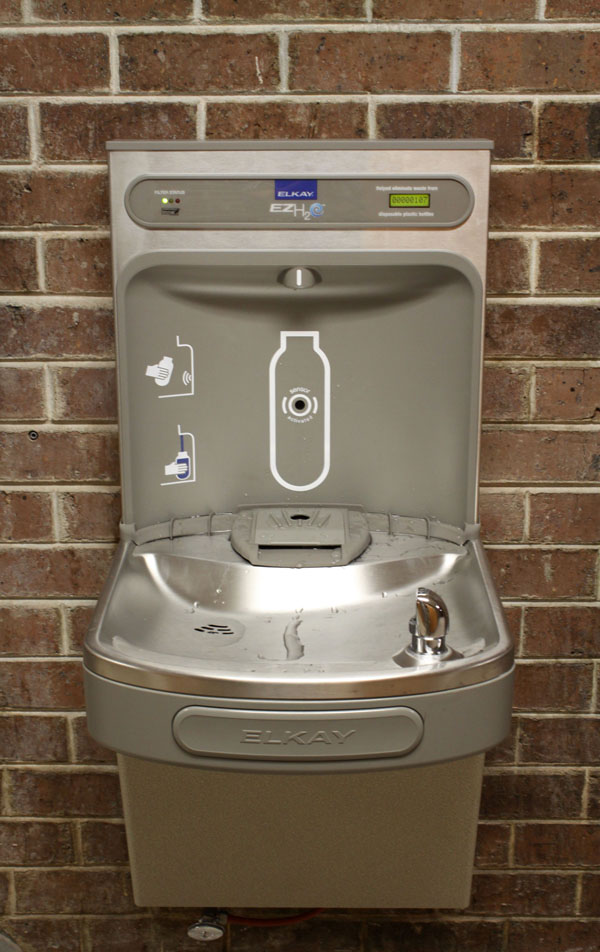The mission of the Office of Sustainability is, “To generate and apply knowledge through holistic praxis to create sustainable solutions that transform society by rethinking, redesigning, and restoring integrated systems.” The office helps to facilitate the transformation of buildings on campus, approaches, and behavior attitudes on sustainability issues.
Various groups on campus including the Physical Plant, Environmental Health and Safety, Parking Services, and Dining Services, all play key roles in the network of sustainability at the College.
In additional to support around campus, the office can attribute its success to the dedicated graduate assistants and student interns who implement a variety of initiatives. Some of the current student projects include Greek Sustainability, the Book Share Program, water refill stations, sustainable food, and more.
Greek Sustainability:
The office is working with Greek Life to implement sustainable initiatives within their community. In November 2012, the office launched the Sustainability Chair program. Members from all Greek organizations were encouraged to apply to be a Sustainability Chair for their chapter. Nineteen people applied, and the office selected the top 13 candidates. The chairs worked with the office for the duration of the semester, learning how to implement sustainable initiatives within their own chapter.
At the annual Greek Life Borelli Awards, held on February 27, the Office recognized the
“Most Sustainable Chapter.” The winner from the NPHC was Alpha Kappa Alpha Sorority Inc. The winner from IFC council was Alpha Epsilon Pi. Throughout the year, chapters have adopted initiatives in four categories: water, waste, awareness, and events. Tools created by the office, including chapter meeting discussions, the Sustainability Chair program, and the Sustaining Greek newsletter, helped chapters work toward the award.
Book Share Program:
The Book Share Program was started by intern Deborah Ong. The initiative began in Fall 2012 in order to encourage more community and social sustainability. The first location is at Black Tap Coffee on Beaufain Street. This location was selected so people from various backgrounds could have access to the program. So far, the Book Share has proven to sustain itself as people are both taking and dropping off books. Deborah is currently looking for a second location to expand the project.
Water refill stations:
In April 2012, the office installed its first refill station in Maybank Hall. The office recently installed two more water refill stations in the Education Center and Rita Hollings Science Center. Two additional locations will be installed in March: the New Science Center and the Lightsey Center. A water campaign, encouraging the campus to utilize these stations over purchasing bottled water, is set to kick-off in March. The office will also be releasing a water refill station map of all the locations on campus. The map will be available on the Sustainability website after Spring Break.
Sustainable Food:
The office is currently working alongside Aramark to develop baseline metrics on waste in dining halls with the goal of developing a cost/benefit analysis of using a pulper, as well as an analysis of traditional waste disposal versus composting. Abby Tennenbaum is analyzing the role of the pulper in waste reduction used at City Bistro. A waste audit conducted last semester found that the pulper reduced the total amount of final waste by 66 percent.
Armed with this data and total waste generated by the dining hall provided by Food Waste Disposal, the office is now working on developing a cost analysis of not only pulping food waste, but also disposal. For example, in the month of November, the College paid a total of $629 to compost the waste in City Bistro. Had the College still used traditional waste disposal with Charleston County, a $989 charge would have been incurred. Traditional waste disposal includes dumpster rentals, pick up fees, and using space in a landfill. Composting is an option to consider as the office looks to reduce costs and move toward more sustainable practices at the College.
To follow these projects and more, visit sustainability.cofc.edu.






